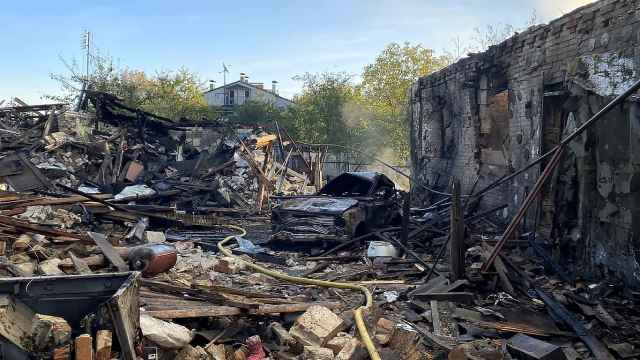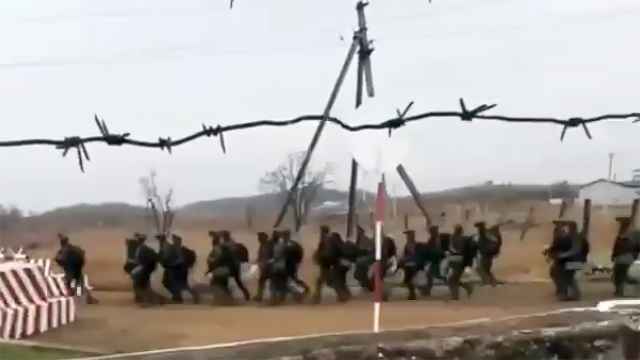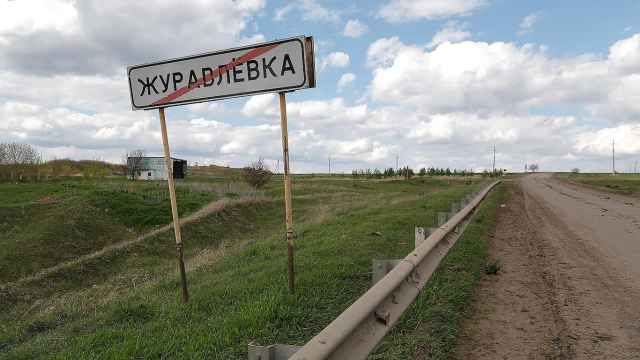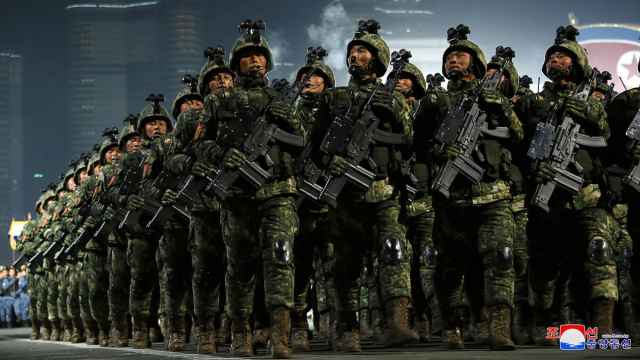After six months of combat with Russia’s 64th Motorized Rifle Brigade in Ukraine, Alexei Astashov quietly rejoiced when he was discharged from the army and sent back to his former life as a veterinarian in the Far East.
But amid the elation of being reunited with his wife and son, he has still not been able to forget what he witnessed in the brutal fighting.
“I had some mild symptoms of post-traumatic stress disorder. I couldn't find my place, I wanted to go somewhere all the time, I was anxious,” Astashov told The Moscow Times.
“It was as if I was still there.”
The difficulties of reintegrating into society faced by Russian soldiers — including those with life-altering injuries — who have begun trickling back home from Ukraine looks set to pose a huge social challenge for the country in the months and years to come.
While the military does run mental health programs, Ukraine war veterans who spoke to The Moscow Times said that they had not been offered any psychological support.
“He is looking for enemies,” one woman from the southern city of Nalchilk said of her recently discharged brother in an August interview with media outlet Kavkaz.Realii.
“It’s difficult for him to get used to civilian life,” she said.
“If this phase doesn’t pass, but gets worse, I won’t know what to do.”
Russian troops in Ukraine — who include conscripts and mercenaries in addition to professional soldiers — have suffered significant casualties in the nine-month war. Often under-equipped, they were largely ill-prepared for fierce Ukrainian resistance.
In some cases there have been reports of Russian units being all but wiped out.
While there are no exact figures for the number of Russian soldiers deployed to Ukraine, the Kremlin has likely committed more men to the fight than any conflict since World War II.
Military expert Pavel Luzhin told The Moscow Times that about 300,000 regular soldiers have taken part — or were taking part — in combat operations. In addition, tens of thousands of Wagner Group mercenaries and Russian-backed separatists are believed to have been deployed.
The strains of combat will make it difficult for many — if not most — of these men to re-enter civilian life when the fighting comes to an end, according to Pavel Alfimov, a psychiatrist at Russia’s Mental Health Service Clinic based in Armenia.
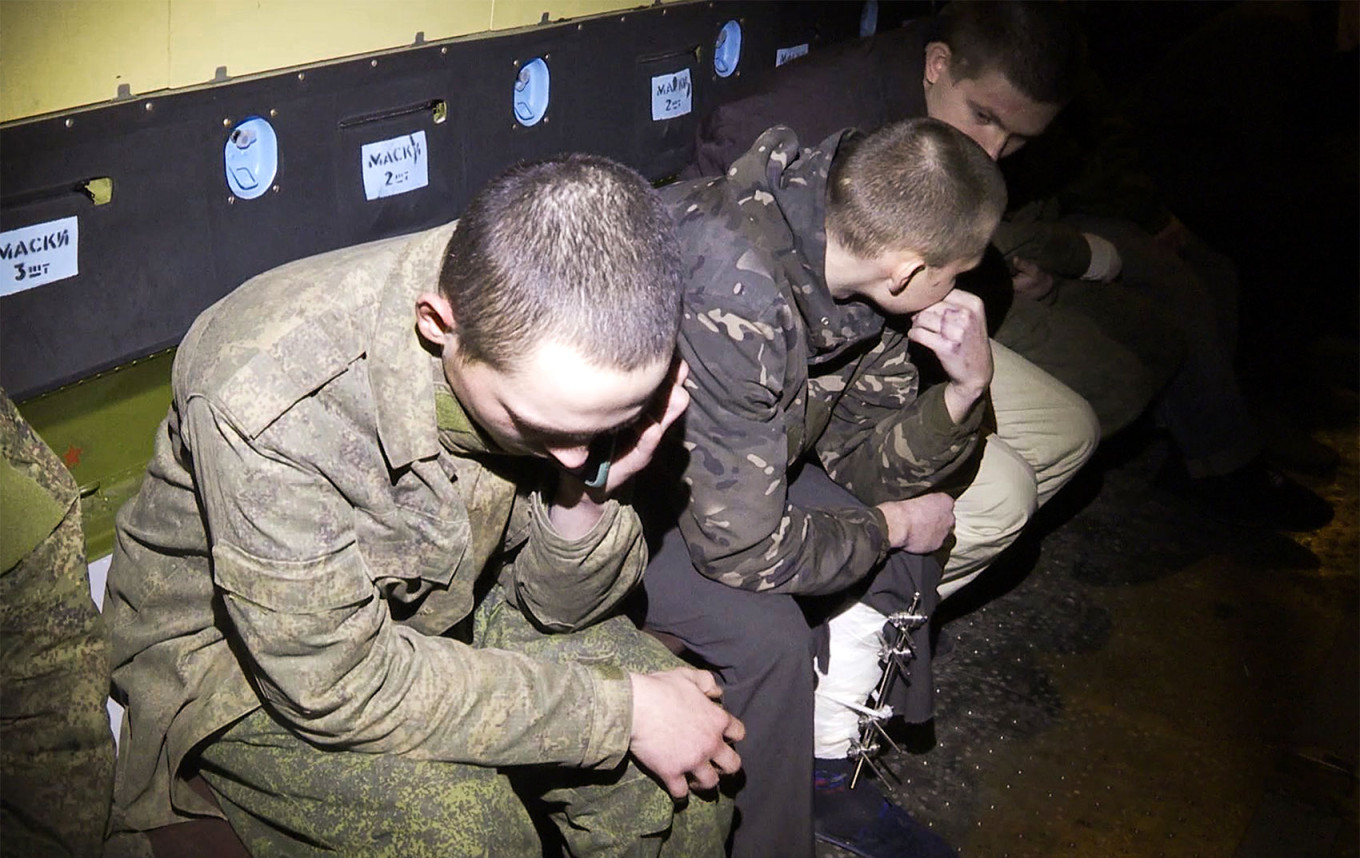
The most common form of psychological scarring is post-traumatic stress disorder (PTSD), a condition characterized by anxiety, panic attacks, nightmares and flashbacks.
If left untreated, those with PTSD can also pose significant health risks not only to themselves but also to those around them, Alfimov said.
Russia’s manpower deficit in Ukraine and mobilization laws that automatically extend terms of service for soldiers mean that only those who have been injured, or those with special dispensations, have so far been discharged from the Armed Forces.
But the experiences of those who have returned suggests that, as the war drags on, Russia will increasingly be grappling with social issues fueled by an influx of war veterans.
Stanislav Ionkin, 23, who fought in Ukraine last month reportedly set fire to a nightclub in the central Russian city of Kostroma with a flare gun. The resulting blaze led to 13 deaths.
“Wars have a tendency to scar those who go through in it, and those scars they bring back into the streets,” Mark Galeotti, an expert on Russian security, told The Moscow Times.
While the extent of PTSD does not necessarily correspond with the horror of what soldiers witness, the fighting in Ukraine has been on a scale not seen in Europe since 1945, with large battles involving tanks, artillery, drones and air power.
When Astashov was In Ukraine, he witnessed death on a daily basis.
A machine gunner turned medic, the 34-year-old said he was tasked with everything from treating wounds to preparing injured soldiers for transportation and moving decaying corpses.
The 64th Motorized Rifle Brigade, which Astashov joined in April, took part in much of the fighting around the Ukrainian capital in the early months of the war — and was implicated in the atrocities in the town of Bucha when it was under Russian occupation.
“My moral and psychological states have changed,” said Astashov, who was discharged after a conflict with the military authorities over his rank and responsibilities.
“Taking part in war makes you realize that there are real people on the other side.”
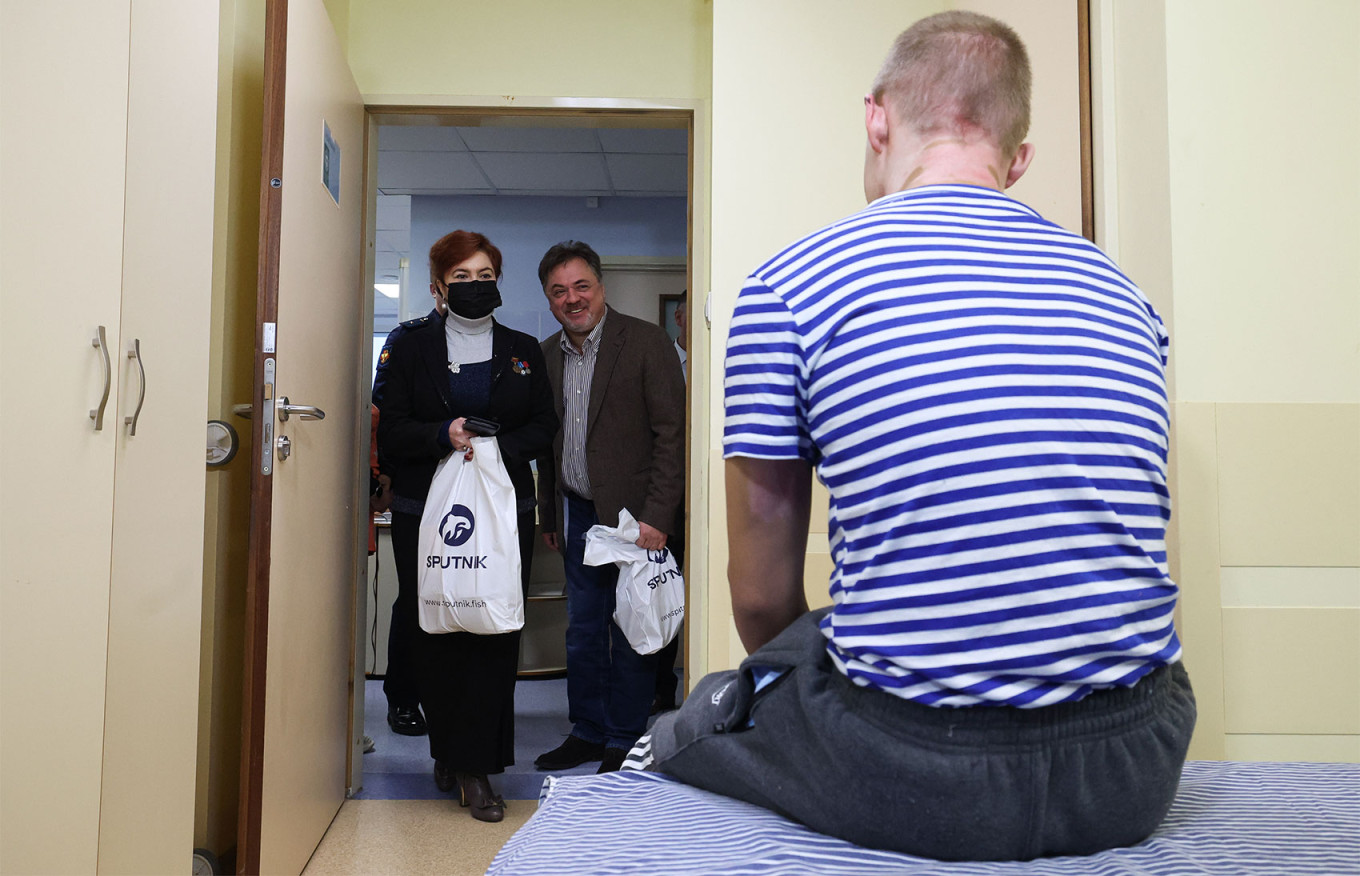
While Russian military personnel who participate in combat operations are entitled to up to 30 days of medical and psychological rehabilitation after demobilization, discharged soldiers who spoke to The Moscow Times said they had received little in the way of such treatment.
“Almost none of my acquaintances who returned from the frontline were offered proper psychological support,” said Astashov, who left Ukraine in August.
Others apparently refused the treatment.
One of those was Vladislav Malov, who fought for six months as a volunteer in Ukraine and previously served in the Russian army in Chechnya in the 1990s.
“Why should I care? I’m fine,” he told The Moscow Times. “A war is a war.”
Instead, many veterans choose to self-medicate — and as a result become susceptible to violent behavior, suicide and addiction.
Malov, who was deployed near the Ukrainian city of Luhansk in a mortar team, admitted alcohol was a problem for veterans.
“Many drink too much after experiencing the horrors of war,” he said.
A lack of post-combat support has traditionally been a problem for the Russian Armed Forces, with the veterans of wars in Afghanistan and Chechnya more likely to commit suicide or be involved in violent crimes.
About 70% of veterans from Russia’s two post-Soviet wars in Chechnya suffered from PTSD, according to the Serbsky Center, Russia's top psychiatry institute.
Instead of state support, Russian soldiers have, in the past, relied on veterans groups to organize mutual help networks and advocate for the rights of former servicemen.
There are no such groups for Ukraine war veterans yet.
As they will need to be able to “criticize the conduct of the government” in order to be credible it will be difficult to set up such groups, expert Galeotti said.
“And that's something there is a lot less room for these days.”
A Message from The Moscow Times:
Dear readers,
We are facing unprecedented challenges. Russia's Prosecutor General's Office has designated The Moscow Times as an "undesirable" organization, criminalizing our work and putting our staff at risk of prosecution. This follows our earlier unjust labeling as a "foreign agent."
These actions are direct attempts to silence independent journalism in Russia. The authorities claim our work "discredits the decisions of the Russian leadership." We see things differently: we strive to provide accurate, unbiased reporting on Russia.
We, the journalists of The Moscow Times, refuse to be silenced. But to continue our work, we need your help.
Your support, no matter how small, makes a world of difference. If you can, please support us monthly starting from just $2. It's quick to set up, and every contribution makes a significant impact.
By supporting The Moscow Times, you're defending open, independent journalism in the face of repression. Thank you for standing with us.
Remind me later.





